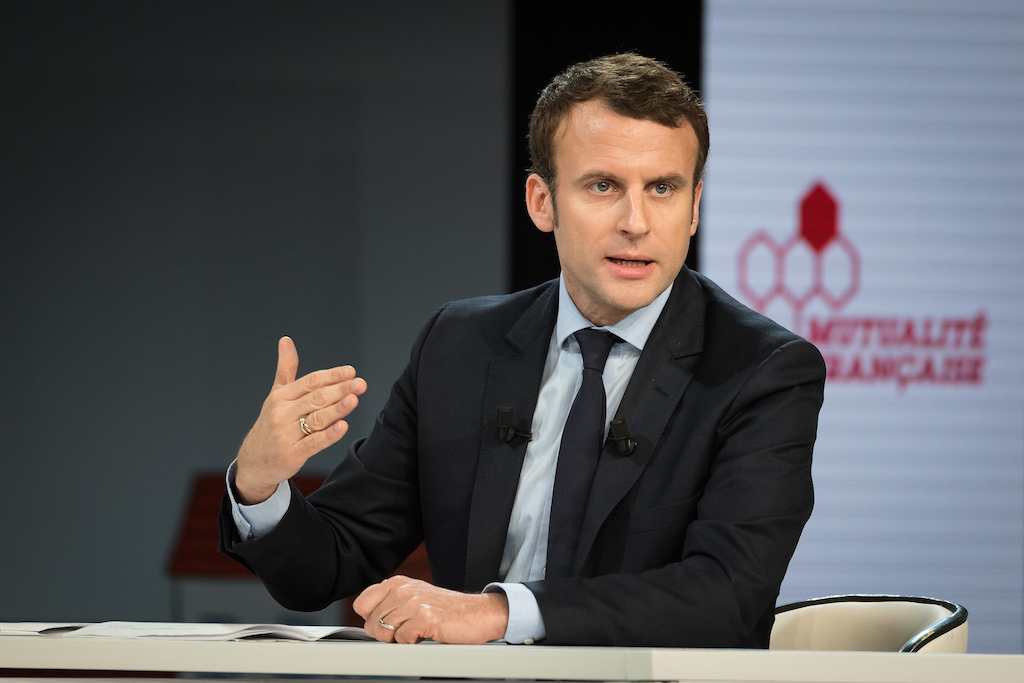The newly elected, eighth president of the Fifth French Republic wants to break with a long-standing French political dynamic.
Instead of politics as a struggle between left and right, workers and capitalists, Socialists and Gaullist Republicans, the forces of change versus the status quo, Emmanuel Macron sees opposition between progressives and conservatives: renewal versus continued sterile conflict.
Macron gets his first chance at demonstrating his commitment to renewal May 11 when he announces the 577 candidates for the June elections to the French National Assembly.
In April 2016, as Macron began building his movement En Marche! — renamed La République En Marche (REM) to contest the elections — he issued an Internet call for candidates.
He has indicated that one-half of REM candidates will be drawn from civil society — i.e. they will not have held elected office at any level.
Macron has also pledged to uphold gender equality in selecting candidates.
The promise of injecting new blood into a political system dominated by long-standing office holders was an important part of building the Macron candidacy from nothing a year ago, to winning top spot in the first round of presidential voting, albeit with less than 25 per cent of the vote.
In the run-off presidential election, Macron was able to handily defeat far-right candidate Marine Le Pen by winning 66 per cent of voter support.
However, commitment to support his electoral program is tempered by exit polls showing over 40 per cent of his second-round electors declaring they were voting mainly to defeat Le Pen, and thwart the ambitions of her National Front party.
Le Pen greeted her defeat by announcing that the National Front would be rebuilt as a new political organization; her opponents will see this as a threat not to be taken lightly.
Fully 20 per cent of first-round Gaullist party voters opted for Le Pen in the run-off round; overall she attracted support from 22 per cent of registered voters. Only seven per cent of voters for the Left candidate Jean-Luc Mélenchon, and virtually no first-round Socialist voters, opted for Le Pen.
Macron has called for renewal of the European Union in a progressive direction. He wants European Value Added Tax (VAT) revenue to fund a European finance ministry that would re-distribute revenue to regions losing income. Like Socialist candidate Benoît Hamon, Macron wants a Eurozone parliament to oversee the finance ministry, and a nascent (and needed) fiscal union.
Macron also defines renewal as making France more competitive in European and world markets though scrapping social protection for workers, a prospect that produced street demonstrations in France the day following his election.
Le Pen see herself as leading an anti-globalization opposition to Macron. She offers an anti-European Union outlook, and extreme nationalist sentiment to her actual and potential supporters. She has gathered support from workers, and from rural France.
The authoritarian core of the National Front is active fomenting division of France into friends and enemies, with immigrants, Muslims in particular, being cast as the enemies.
Despite its efforts to moderate its image, tone down its rhetoric, and bury its openly anti-Semitic past, for a solid majority of French citizens, the National Front remains the party stoking fears of “others,” and ethnic hatred.
Macron represents an optimistic vision of France defeating unemployment, lifting Europe out of economic doldrums and helping the world slow climate change.
In his campaign, Macron was able to strike a progressive pose — especially with Marine Le Pen as a debating partner.
More will be known about his priorities once Macron names his prime minister and cabinet on May 14, the date he assumes presidential office.
The Gaullist Fifth Republic foresaw French presidential elections as setting the stage for building a presidential majority government. So two rounds of legislative voting always follow closely after the election of the Chief of State.
Potential support for the self-styled progressives running under the new REM banner is uncertain. How many of them will emerge from two rounds of voting is unknown.
To establish a voting coalition to implement his ideas, Macron will likely reach out to second-round supporters from amongst his former Socialist colleagues, and/or Republican legislators.
Socialist and Republican parties alike have come under criticism from Macron as being “conservative” for their unwillingness to undo the French social state.
If Macron wants to make his progressive presidency a success, he can certainly do better than impose neoliberal market economics, and expect the population to accept a more precarious future.
Duncan Cameron is former president of rabble.ca and writes a weekly column on politics and current affairs.
Photo: Mutualité Française/flickr




